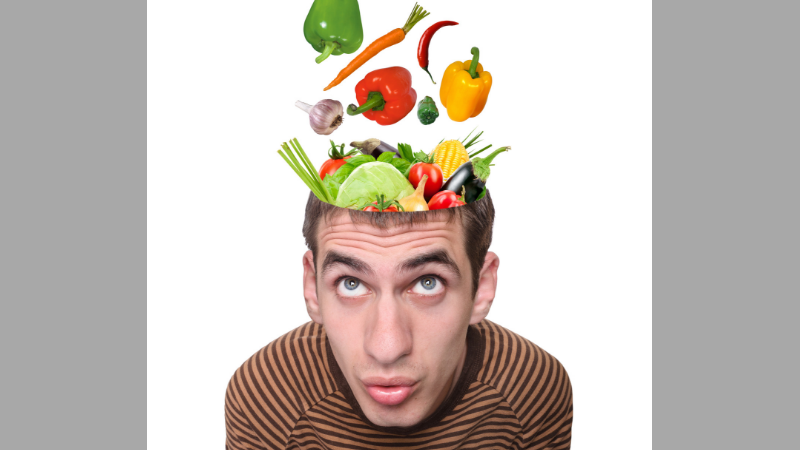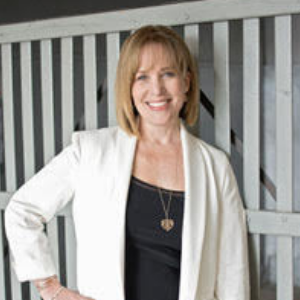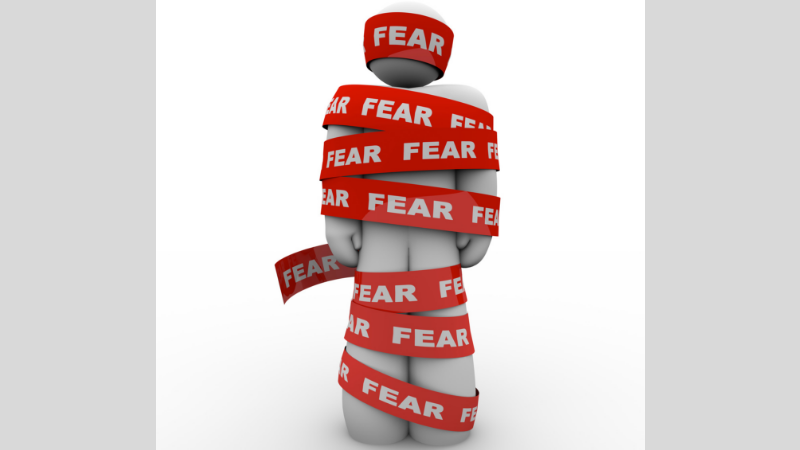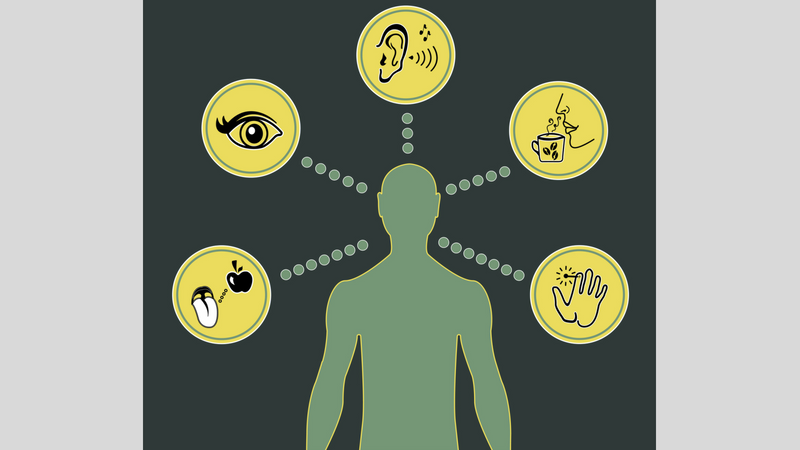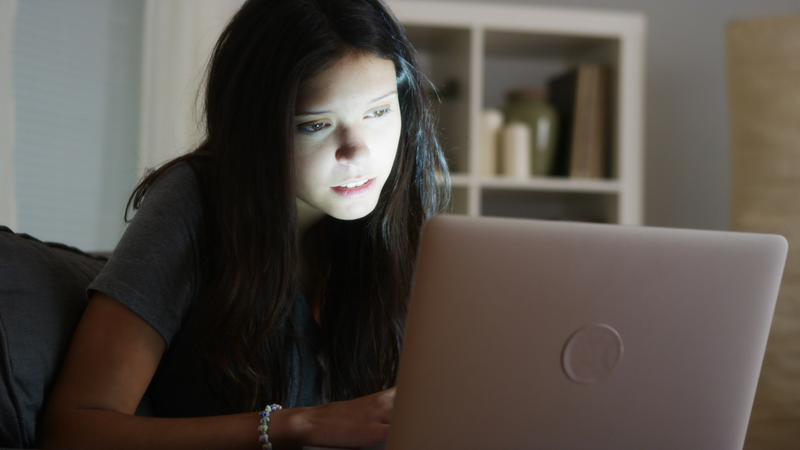Cutting Sugar Helped Me Manage My Anxiety
This week, Wounded Birds Ministry welcomes Ruth Henderson! Today, Ruth shares with us her experiences with GAD and using an elimination diet to help her manage her anxiety – including cutting out sugar.
Life Is a Struggle
This past July has not been my favorite month, with bad news involving my family and even my 14-year-old cat testing my patience and my nerves.
It never rains, but it pours, right?
Anyway.
As I unloaded the details of the past few weeks to one of my closest friends, he said, “Wow Ruth, what a sh*tty summer. And also, I think you should go to Dairy Queen and have a huge Blizzard and eat all the toppings possible.”
Ah, if only.
There was a time when that’s exactly what I would do, and the dopamine kick of all the sugar in the Triple Chocolate Skor Brownie Blizzard would be just the ticket to helping me feel better, at least for a while.
But these days a Blizzard would have exactly the opposite effect, so I passed on that suggestion and instead had a huge cup of tea with cream and sugar, which is about as defiant as I want to be with my diet right now.
In case you’re wondering, no, I’m not trying to lose weight.
No, I’m not counting calories or watching my carbs or eating Keto, or any of those things.
What I am doing is cutting back on foods that have been proven to cause negative physical responses for me, including inflammation, migraines, joint pain, thyroid issues, and, in many ways worst of all, anxiety.
A Little Backstory
The Beginning
In November 2011 I was diagnosed with Generalized Anxiety Disorder (GAD).
In the months leading up to that moment I had been a senior executive in a business transformation role, I was speaking at engagements across North America, I was dealing with chronically ill parents as the primary caregiver, and I was plotting to leave my job and start my own business with a co-worker.
I started having seriously strong heart palpitations that would last several minutes. I felt like a cloud of doom was shrouded over my head. I thought my pulse was so strong and loud that people could either hear it or see it beating in my neck. I got dizzy. I had to lie down on my office floor more than once.
I thought I might be having a heart attack or losing my mind, and I wasn’t sure which would be worse.
My family doctor, whom I’ve known for more than twenty years, was a gem. She ran a bunch of tests, and one day sat me down to let me know I had GAD.
No, I wasn’t going to die.
Yes, it was manageable.
These were wonderful words to hear until she told me I would be taking an anti-depressant to help control these anxiety attacks.
This was when I learned that anxiety runs in my family – I can count nine family members who have anxiety disorders ranging from claustrophobia to irritable bowel to panic disorder to anorexia and depression.
I wish I had known this before, but at least I knew it after talking with my Dr. and developing a plan with her.
About three months after starting the medication, a light suddenly went on and the veil of anxiety lifted.
Not permanently, but gradually, ever so gradually, I felt better.
Phase Two: Considering a Naturpathic Approach
In April of 2012, about four months after my anxiety diagnosis, I met a Doctor of Naturopathic Medicine (ND) at a business networking event. I had no idea what an ND did, but I quickly decided that she was lovely, smart, and empowering, but this “naturopathic stuff” was a bit too hippy dippy for me.
I’m a process person. I think in logical, realistic, cause-and-effect patterns. My whole family is like that – scientists, doctors, nurses, and consultants – we all need to see the proof of things.
At least I do.
So, while I became friends with Lisa, I didn’t visit her as a patient.
I did, however, try to stay open to learning more about what she did, and I asked lots of questions too, if for no other reason than it was interesting.
In May of 2012 my mother passed away, and six weeks later my father passed away. I was the executor of the estate and had a lot of financial and legal things to do while I grieved.
Anxiety just made everything harder. I felt I took longer to do things, that I wasn’t as sharp as I used to be, and my feet were stuck in mud. I was exhausted, and the palpitations were back.
In November of 2012, I mentioned to Lisa that I was puffy and headachey and tired and, while my anxiety was mostly managed with my meds, it still bothered me, a year after my diagnosis.
She said to me something along the lines of, “Ruth, there are studies that link specific foods to symptoms you’re describing. Do you want to try another way of looking at things and see how it impacts your health?”
At this point, I trusted her completely. Smart, science-based, and non-judgmental, Lisa has a way about her that makes you feel fully in control and never chastises you for your lifestyle choices.
So I said, “Sure. Let’s give it a try, and let’s track some numbers too so I can see whether it’s making a difference.”
Lisa agreed and refused to measure weight, as she believes that is not the best measure for health and well-being. (I did that on my own, to be completely honest.)
She took some measurements, requested bloodwork, and did a complete exam with temperature, blood pressure, and even Chinese pulses.
Lisa also communicated what she was doing with my family doctor, who, because she’s also amazing, remains fully supportive to this day.
We started by doing an elimination diet to see if I reacted to foods that can be problems for people.
The Elimination Diet
An Elimination Diet is a process of removing certain foods from your regular diet and then adding them back, one at a time, to see if there are adverse effects.
These diets can eliminate any number of commonly reactive foods, and nearly always include gluten, dairy, eggs, sugar, alcohol, caffeine, legumes, and nightshade vegetables.
You eliminate these foods for a period of time (usually several weeks) and track how you’re feeling, your sleep patterns, headaches, and bowel movements, among other things.
Then you pick one food, add it back in for at least three days, note any differences, and move on to the next. It’s advisable to do this under the watch of a healthcare professional.
Sure enough, I had strong reactions to gluten and dairy, including substantial bloating, migraines, joint paint, and diarrhea.
Also, palpitations.
Think of someone who loves ice cream and bread. Someone who grew up making bread from scratch at her mother’s knee and who thinks of it as the ultimate comfort food.
Someone who would happily eat ice cream and pizza every day of her life.
Now multiply that times 100: That’s me.
You can imagine how I felt about these results, but the evidence was clear.
Phase 3: Sugar Gets the Axe
Over the next couple of years, I worked with Lisa on refining my diet, because although eliminating gluten and dairy made a positive difference in my life, I still was having a rough time sleeping, was very tired with low energy, and was experiencing anxiety on occasion, even with the meds.
In 2014 I took a food reaction blood test (called an IgG) to rule out once and for all the different foods that were impacting my life.
“Just don’t let it be sugar,” I said to Lisa. “If I can’t have bread, it would be cruel to make me eliminate sugar as well.”
The test measures food antibodies and places them on a scale of 0 to 6, with 6 being the strongest reaction, and the recommendation is usually to eliminate anything over a 3.
Well, in addition to dairy and gluten, I had to eliminate eggs and sugar. In fact, sugar scored a 5.5, by far the worst thing I could eat out of the hundreds that are tested.
The Science
If you spend a few minutes with Google, you will find a host of articles that talk about diet and anxiety or depression, and the findings seem all over the map.
The Mayo Clinic says that people with food sensitivities can experience physical reactions that “lead to shifts in mood, including irritability or anxiety.” More specifically, you’ll find themes that say things like caffeine, alcohol, and sugar can spike or heighten anxiety.
Why?
Why should things that are so delicious and feel so good going down, make you feel so awful later? And why anxiety specifically?
Well for alcohol, we know that although people feel it has a calming effect, over time, it actually rewires your brain. Even moderate amounts can result in increased anxiety only a few hours later.
Caffeine actually increases stress hormones and can cause insomnia, both of which are not things that you want in your life if you are anxious.
And finally, sugar. Oh, my favorite drug, sugar. Sugar puts your body through a roller coaster of emotions, making you feel good and then sending you into a crash.
Your body works hard to recover from the crash, and this hard work makes you feel jittery or nervous and reduces your ability to respond to stress healthily.
There’s lots of science out there, and it says that what you put in your body will impact your ability to deal with your anxiety.
Ugh.
Diet and My Anxiety
It’s been a journey to get here, and finally, after years of work with my ND, Lisa, and with my family doctor, I finally have my physical and chemical measurements where they should be.
In fact, in the summer of 2016, I began a six-month program to discontinue my anxiety medication, with the full support of both my family doctor and Lisa. My family doctor provided the “Western-medicine” oversight, and Lisa provided the diet and supplement support.
I talked to my family doctor and Lisa about it about a year before that, and told them, “I will stay on my medication as long as I need to, but I’m wondering when I would be ready to see if I can deal with anxiety while being prescription free?”
I was told that when I could go six months without symptoms, they’d consider it.
Well, I did it.
It took a while, and I had a couple of setbacks, but I did it.
And I noticed that every single setback was related to some kind of food issue. Perhaps I was on vacation and let my diet slip. Perhaps Halloween candy was too much to resist and I took in too much sugar. Perhaps I just had a bad day and ice cream at that moment was worth it.
I want to be clear that I am not an expert at conquering my food issues. I try every single day, and some days I’m better than others.
In the last several years it has become clear to me that I am at my healthiest when I eat according to the Auto Immune Protocol (AIP) – it’s sort of like Paleo, but even more.
Friends say, “but what can you actually eat?”
Well, quite a lot, actually.
I’m getting pretty good at AIP meals and even baking treats and desserts. I’m planning a cookbook for AIP and Paleo eaters, and I’m finally having fun (mostly) in the kitchen again.
I make muffins and cakes that no one suspects are pretty much “everything free,” and I delight in putting together wonderful menus and meal plans for friends and family.
Right now, with everything going on in my family, I can’t afford to let anxiety loose in my body.
It’s there.
It’s bubbling beneath the surface.
So, I will stay away from the poor choice foods that are oh-so-tempting, I will check in with Lisa to see if for any supplements that can help boost my resistance to anxiety right now, and I will get outside and breathe in some fresh air.
And I will manage.
Even without ice cream and sugar.
Ruth Henderson
Her career spans a wide spectrum of business activities including business process re-engineering, sales, marketing, customer service, change management, and financial operations. Ruth’s formal education at Queen’s University garnered her a BA and an MBA, but her specialized training came later when she was the first person to be certified as a Black Belt in Ford Motor Company’s global rollout of Six Sigma process methodology in the late 1990’s. This distinction, her work experience, and her natural skills in public speaking have led to international speaking and training engagements.
In 2012 Ruth and her business partner started Whiteboard Consulting Group, a boutique management consulting company that helps organizations manage change, innovation, and improvement more effectively in order to improve their business results. They do this by focusing on business process improvement and the leadership skills required not only to identify solutions, but also to ensure those solutions stick.
What does your nutrition look like? Have you cut anything from your life? Did it impact your mental health?
Looking for daily inspiration and community? Join our warm and supportive Facebook group!

